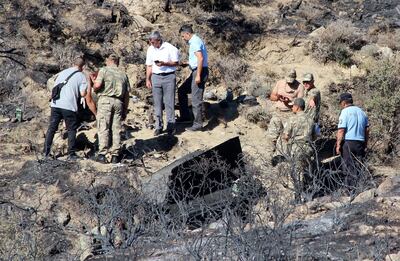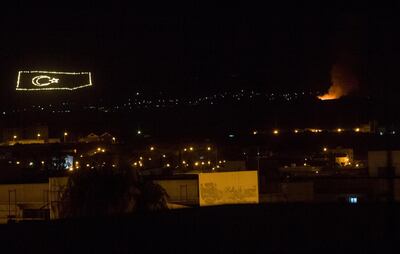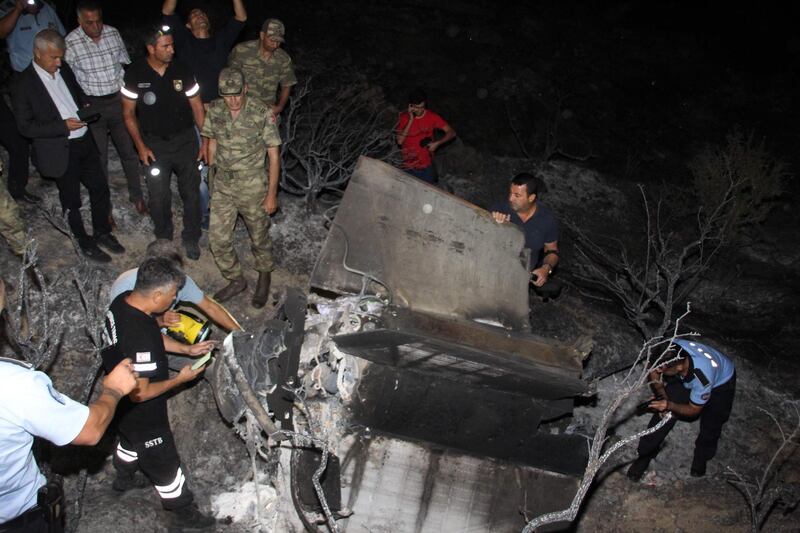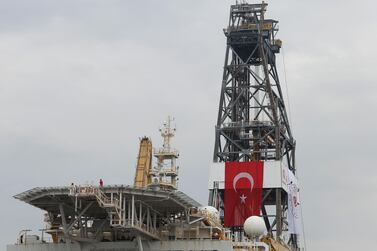A rogue missile that exploded in northern Cyprus overnight appears to have been a Russian-made explosive, according to Turkish Cypriot foreign minister Kudret Ozersay.
The missile exploded in midair over a village on a mountainside north of the capital Nicosia in the early hours of Monday morning.
Ersin Tatar, the prime minister of the north of the divided island, said no one was hurt in the blast.
"The first assessment is that a Russian-made missile, part of the air defence system, which was part of the air defence system that took place last night in the face of an air strike against Syria, completed its range and fell into our country after it missed," Mr Ozersay said in a social media post on Monday.
The errant missile skimmed the densely populated capital Nicosia and crashed on a mountainside in what officials said could have been a spillover of an Israeli strike on Syria and a counter response.

The explosion occurred around 1am (2200 GMT Sunday) in the region of Tashkent, also known as Vouno, some 20 kms (12 miles) northeast of Nicosia, with the impact setting hills ablaze and heard for miles around.
An Israeli air strike was underway against Syria at the time. Syrian state media said the Syrian air defences had fired in response to the Israeli attack.
The missile defence system may have been set off by Israeli air strikes that killed at least 15 people near Damascus and in Homs province late Sunday, according to a war monitor.
Russia supports the Syrian government in the eight-year war against rebel groups, and has provided it with extensive missile defence systems.

The markings on the debris were the same as those found on an S-200 missile that fell in Turkey last year, Mr Ozersay added.
He said in a post on Facebook that the explosion was thought to have occurred before impact because there were no craters.
"The pieces that fell to several different points prove that the missile exploded in the air before it crashed," he said.
Cyprus lies west of Syria. Israeli war planes had fired missiles targeting Syrian military positions in Homs - around 310 kilometres (193 miles) from Nicosia - and the Damascus outskirts overnight.
The freak incident would be the first time that Cyprus has been caught in the crosshairs of military operations in the Middle East despite its proximity to the region.
A Greek Cypriot military analyst, Andreas Pentaras, said the debris suggested it was a Russian-made S-200 missile, which can have a range of up to 400 kilometres.
He said: "An assessment from the pictures made public shows the base of its wings. It has Russian writing on it, so it suggests it is Russian made. Syria uses Russian-made missiles, so a not-so-safe assessment would be it was .. an S-200 (missile)."
Jamming technology could have diverted the missile, he added. Another analyst said that, should the missile hypothesis prove to be correct, it could have been faulty.
"Right now we can't be absolute but from the pictures and the inscriptions it appears to be an S-200," analyst Zenonas Tziarras of the Geopolitical Cyprus think-tank told Reuters.
Those missiles were designed to explode in mid-air if they don't hit a target, he said.
Residents told Cypriot media they saw a light in the sky then three loud explosions were heard for miles around. Tashkent is a small village in the foothills of a mountain range rimming northern Cyprus.
Authorities evacuated some homes.








